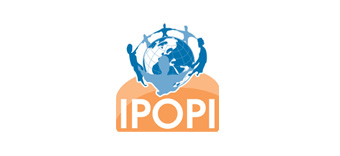June 17, 2024
From the President’s desk

From the President’s desk
Reflecting on the last trimester’s activities, IPOPI has demonstrated a steadfast commitment to global engagement. Our vibrant World Primary Immunodeficiencies Week (WPIW) showcased the strong involvement of our members worldwide, including our newest ones who have proven their dedication to making their patients’ needs visible. We held a very productive IPOPI regional Asian meeting in Japan, back-to-back with the APSID[1] congress, which brought together the leadership of our patient organisations in the region with regional doctors including our colleagues from SEAPID[2]. Additionally, our collaboration with UNITAR[3] engages our members in Argentina and Malaysia, while our PIDetect programme in Bangladesh was achieved through our partnership with PGIMER[4] in Chandigarh, India. On another topic, we have noted with great enthusiasm, that newborn screening features for the first time in a World Health Organisation (WHO) resolution for policy implementation which was approved during the 77th World Health Assembly in Geneva last May. This is a real encouragement to our efforts towards the implementation of newborn screening for treatable rare diseases, moreover, this inclusion has the potential to make a real difference, particularly in low- and middle-income countries.
However, whilst we celebrate our successes, we must address critical challenges, affecting all countries. As such, two areas currently stand out: the need to intensify plasma collection and the necessity of adult specialists who can manage people with Primary Immunodeficiencies (PIDs).
There again, let’s begin with some great news. The European Medicine Agency (EMA) has lifted the ban on UK donors donating plasma for fractionation. IPOPI, along with other stakeholders, strongly supported this request and welcomed the decision which was made in light of clinical and epidemiological scientific evidence. British plasma donors will now be able to contribute to Europe’s plasma collection efforts. IPOPI has long supported the view that more regionally balanced plasma collection will be key to meeting global patient needs in plasma-derived medicinal products (PDMPs). On the topic of PDMPs, IPOPI has recently released a position statement to support the efforts of its national PID patient organisations around the globe in requesting access to safe, efficacious and high-quality immunoglobulin therapies. Some of them have been facing worrying developments in their countries pertaining to the distribution of sub-optimal immunoglobulin therapies that do not meet regulatory requirements and international standards. Among recent developments, we are specifically concerned about the promotion of alternative technological methods to fractionation in Low and Middle-Income Countries (LMICs), which have not proven their safety or efficacy. The argument that “this is better than nothing” is unacceptable when safer and more effective alternatives exist. We must prioritise long-term solutions that guarantee the production of safe and efficacious therapies.
In many countries, both patient representatives and healthcare professionals work tirelessly to ensure a smooth transition from childhood to adulthood for PID patients. A well-managed transition from pediatric to adult care is essential for optimal patient outcomes. This transition should be a comprehensive process, not merely the transfer of medical files. Effective transition programmes improve treatment adherence, prevent comorbidities, and empower patients to lead fulfilling lives due to increased education and autonomy. However, the lack of adult PID specialists in many countries creates a significant barrier to achieving these goals. The absence of dedicated reference centres, the underdevelopment of immunology as a subspecialty, and a general lack of awareness about PIDs (still too often perceived as solely pediatric conditions) all contribute to this critical shortage.
These are just two of the many challenges facing the global PID community. However, they do not overshadow the numerous other projects we have, making our work all the more exciting! It is precisely what motivates us to launch the exciting new IPOPI Research Grant Programme. This significant initiative is aimed at advancing scientific and clinical research in immunodeficiencies by providing support to research projects that aim to improve the lives of PID patients around the world. We intend to support projects across a wide range of disciplines, recognising that progress can come from many different directions.
We hope you enjoy reading about IPOPI and our community’s endeavours around the world. Wishing happy holidays to those of you for whom the summer season means a little rest!
[1] Asia-Pacific Society for ImmunoDeficiencies
[2] South-East Asian Primary Immunodeficiencies Consortium
[3] United Nations Institute for Training and Research
[4] Post Graduate Institute of Medical Education & Research
Martine Pergent
IPOPI President
